
The American Civil War was a civil war in the United States between the Union and the Confederacy, which had been formed by states that had seceded from the Union. The central cause of the war was the dispute over whether slavery would be permitted to expand into the western territories, leading to more slave states, or be prevented from doing so, which many believed would place slavery on a course of ultimate extinction.

Chinese is a group of languages spoken natively by the ethnic Han Chinese majority and many minority ethnic groups in China. Approximately 1.3 billion people, or around 16% of the global population, speak a variety of Chinese as their first language.

Mandarin is a group of Chinese language dialects that are natively spoken across most of northern and southwestern China. The group includes the Beijing dialect, the basis of the phonology of Standard Chinese, the official language of China. Because Mandarin originated in North China and most Mandarin dialects are found in the north, the group is sometimes referred to as Northern Chinese. Many varieties of Mandarin, such as those of the Southwest and the Lower Yangtze, are not mutually intelligible with the standard language. Nevertheless, Mandarin as a group is often placed first in lists of languages by number of native speakers.

Moby-Dick; or, The Whale is an 1851 novel by American writer Herman Melville. The book is the sailor Ishmael's narrative of the maniacal quest of Ahab, captain of the whaling ship Pequod, for vengeance against Moby Dick, the giant white sperm whale that bit off his leg on the ship's previous voyage. A contribution to the literature of the American Renaissance, Moby-Dick was published to mixed reviews, was a commercial failure, and was out of print at the time of the author's death in 1891. Its reputation as a Great American Novel was established only in the 20th century, after the 1919 centennial of its author's birth. William Faulkner said he wished he had written the book himself, and D. H. Lawrence called it "one of the strangest and most wonderful books in the world" and "the greatest book of the sea ever written". Its opening sentence, "Call me Ishmael", is among world literature's most famous.

Mary, Queen of Scots, also known as Mary Stuart or Mary I of Scotland, was Queen of Scotland from 14 December 1542 until her forced abdication in 1567.

Oscar Fingal O'Fflahertie Wills Wilde was an Irish poet and playwright. After writing in different forms throughout the 1880s, he became one of the most popular playwrights in London in the early 1890s. He is best remembered for his epigrams and plays, his novel The Picture of Dorian Gray, and his criminal conviction for gross indecency for homosexual acts.

The 1988 United States presidential election was the 51st quadrennial presidential election held on Tuesday, November 8, 1988. The Republican nominee, incumbent Vice President George H. W. Bush, defeated the Democratic nominee, Governor Michael Dukakis of Massachusetts.
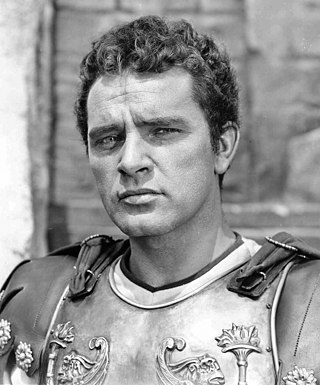
Richard Burton was a Welsh actor.

A castle is a type of fortified structure built during the Middle Ages predominantly by the nobility or royalty and by military orders. Scholars usually consider a castle to be the private fortified residence of a lord or noble. This is distinct from a mansion, palace and villa, whose main purpose was exclusively for pleasance and are not primarily fortresses but may be fortified. Use of the term has varied over time and, sometimes, has also been applied to structures such as hill forts and 19th- and 20th-century homes built to resemble castles. Over the Middle Ages, when genuine castles were built, they took on a great many forms with many different features, although some, such as curtain walls, arrowslits, and portcullises, were commonplace.

Charles Edward Louis John Sylvester Maria Casimir Stuart was the elder son of James Francis Edward Stuart, grandson of James VII and II, and the Stuart claimant to the thrones of England, Scotland and Ireland from 1766 as Charles III. During his lifetime, he was also known as "the Young Pretender" and "the Young Chevalier"; in popular memory, he is known as Bonnie Prince Charlie.

The 1988 Summer Olympics, officially known as the Games of the XXIV Olympiad and commonly known as Seoul 1988, was an international multi-sport event held from 17 September to 2 October 1988 in Seoul, South Korea. 159 nations were represented at the games by a total of 8,391 athletes. 237 events were held and 27,221 volunteers helped to prepare the Olympics.
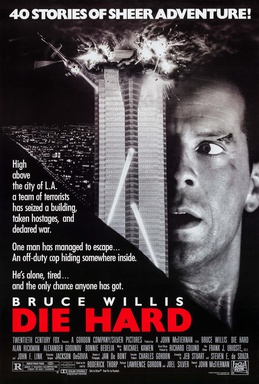
Die Hard is a 1988 American action thriller film directed by John McTiernan and written by Jeb Stuart and Steven E. de Souza based on the 1979 novel Nothing Lasts Forever by Roderick Thorp. It stars Bruce Willis, Alan Rickman, Alexander Godunov, and Bonnie Bedelia, with Reginald VelJohnson, William Atherton, Paul Gleason, and Hart Bochner in supporting roles. Die Hard follows New York City police detective John McClane (Willis) who is caught up in a terrorist takeover of a Los Angeles skyscraper while visiting his estranged wife.
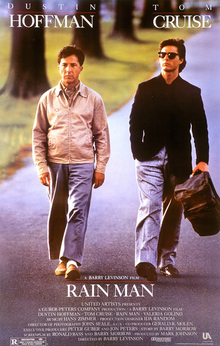
Rain Man is a 1988 American road comedy-drama film directed by Barry Levinson and written by Barry Morrow and Ronald Bass. It tells the story of abrasive, selfish, young wheeler-dealer Charlie Babbitt, who discovers that his estranged father has died and bequeathed virtually all of his multimillion-dollar estate to his other son, Raymond, an autistic savant of whose existence Charlie was unaware. Charlie is left with only his father's beloved vintage car and rosebushes. Valeria Golino also stars as Charlie's girlfriend, Susanna. Morrow created the character of Raymond after meeting Kim Peek, a real-life savant; his characterization was based on both Peek and Bill Sackter, a good friend of Morrow who was the subject of Bill, an earlier film that Morrow wrote.
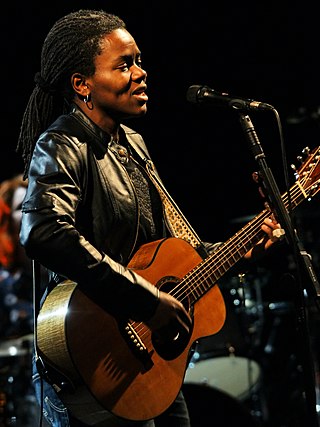
Tracy Chapman is an American singer-songwriter. Chapman is best known for her hit singles "Fast Car" (1988) and "Give Me One Reason" (1995).

Jimmy Lee Swaggart is an American Pentecostal televangelist.
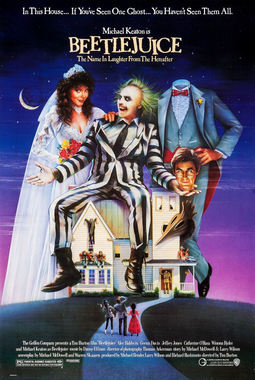
Beetlejuice is a 1988 American fantasy horror comedy film directed by Tim Burton, written by Michael McDowell, Warren Skaaren, and Larry Wilson, produced by The Geffen Company, distributed by Warner Bros., and starring Alec Baldwin, Geena Davis, Jeffrey Jones, Catherine O'Hara, Winona Ryder, and Michael Keaton as the title character. The plot revolves around a recently deceased couple who, as ghosts haunting their former home, contact Beetlejuice, an obnoxious and devious "bio-exorcist" from the Netherworld, to scare the home's new inhabitants away.

The 1988 United States House of Representatives elections was an election for the United States House of Representatives in November 8, 1988, to elect members to serve in the 101st United States Congress. They coincided with the election of George H. W. Bush as president. Although Bush won with a strong majority, his Republican Party lost a net of two seats to the Democratic Party, slightly increasing the Democratic majority in the House. It was the first time since 1960 that an incoming president's party lost seats in the House.

Desmond Tutu was a South African Anglican bishop and theologian, known for his work as an anti-apartheid and human rights activist. He was Bishop of Johannesburg from 1985 to 1986 and then Archbishop of Cape Town from 1986 to 1996, in both cases being the first black African to hold the position. Theologically, he sought to fuse ideas from black theology with African theology.

The Boeing B-52 Stratofortress is an American long-range, subsonic, jet-powered strategic bomber. The B-52 was designed and built by Boeing, which has continued to provide support and upgrades. It has been operated by the United States Air Force (USAF) since the 1950s. The bomber can carry up to 70,000 pounds (32,000 kg) of weapons, and has a typical combat range of around 8,800 miles (14,200 km) without aerial refueling.

Nelson Rolihlahla Mandela was a South African anti-apartheid activist and politician who served as the first president of South Africa from 1994 to 1999. He was the country's first black head of state and the first elected in a fully representative democratic election. His government focused on dismantling the legacy of apartheid by fostering racial reconciliation. Ideologically an African nationalist and socialist, he served as the president of the African National Congress (ANC) party from 1991 to 1997.




















